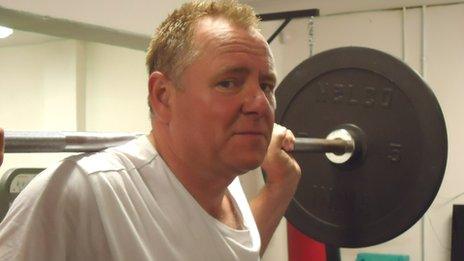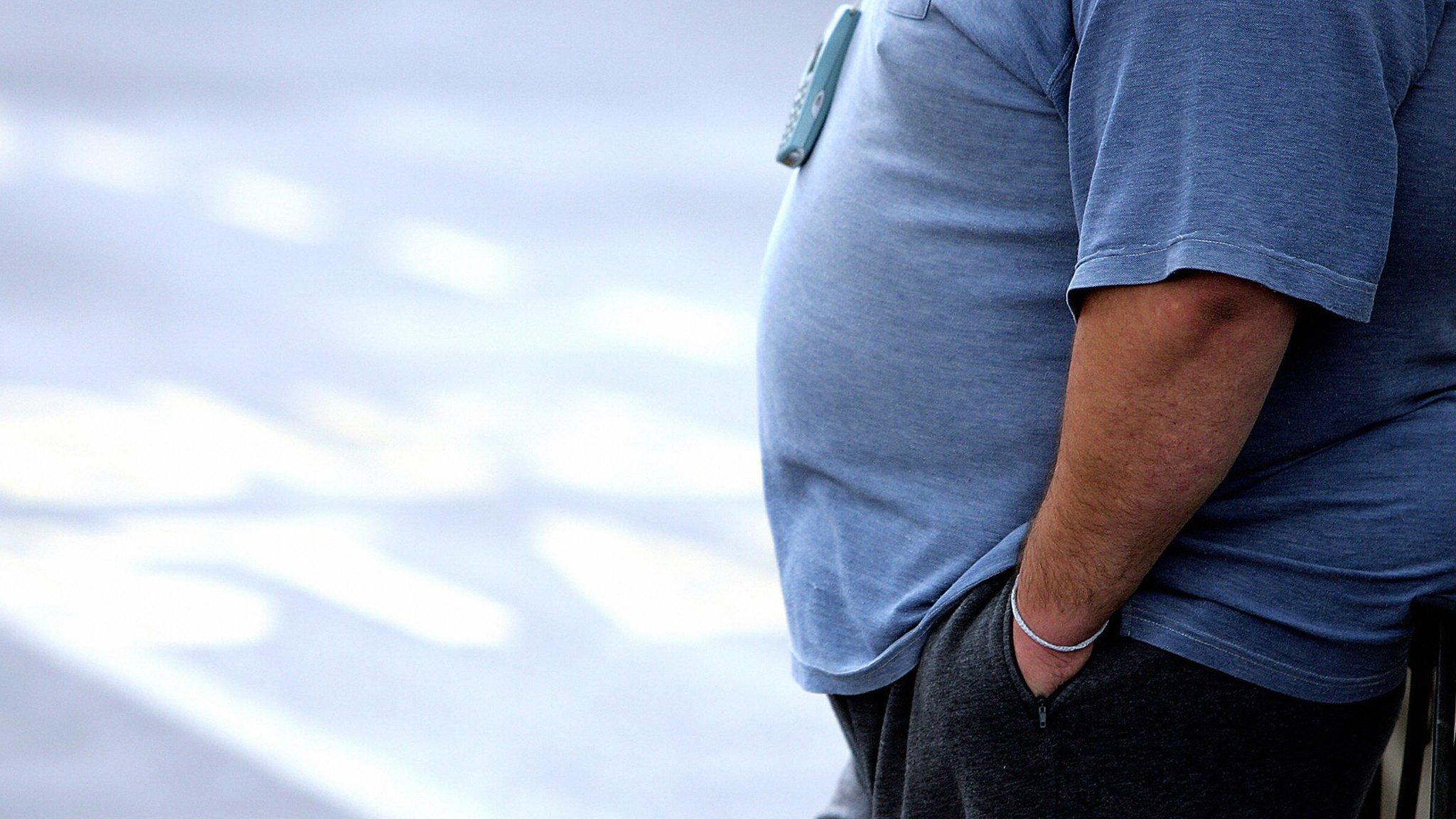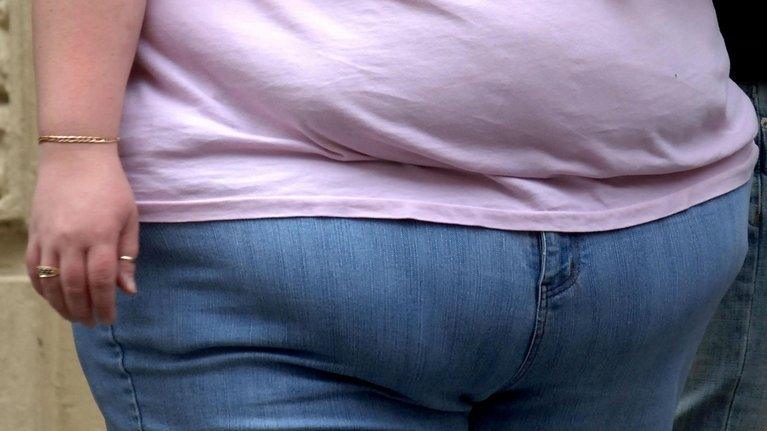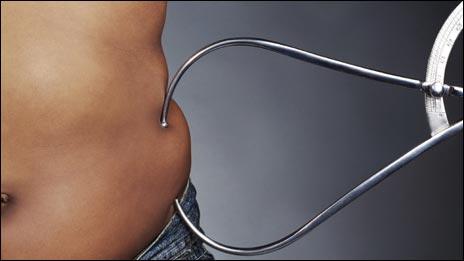Two thirds of middle aged people in Wales are overweight or obese, says study
- Published
Researchers warned many people were in denial about their weight and health risk
Nearly two thirds of people in Wales in their early 40s are overweight or obese, according to new research.
The University of London study found 37% of adults were overweight by the age of 42 and men are more likely than women to have a weight problem but are less likely to realise it.
A further one in four men (26%) and women (27%) were obese.
Researchers studied the body mass index (BMI) of almost 10,000 men and women in Wales, Scotland and England.
Men in Wales were significantly more likely to be overweight than women in middle age, the research finds.
Nearly half of men (46%) were overweight at 42, compared to almost a third of women (30%).
In Scotland, the proportion of men and women who were overweight at age 42 was identical to Wales, while obesity rates were slightly lower.
The proportion of middle-aged adults in England who were overweight was also similar but the obesity level was again lower - 23% for men and 19% for women.
The study said that British men were significantly less likely than women to realise they are carrying excess weight.
The research was carried out by Dr Alice Sullivan and Matt Brown of the university's institute of education centre for longitudinal studies.
Dr Sullivan said: "People who are overweight or obese face a higher risk of many health problems, including cardiovascular disease, diabetes and certain cancers," she said.
"But carrying excess weight is far more socially acceptable for men than for women and men will not respond to health messages about weight and obesity if they do not recognise that they are overweight.
"This is a particular concern given that cardiovascular disease is the leading cause of death for men aged 35 and over."
The researchers also found that men and women born in 1970 were considerably more likely to be obese at 42 than those born in 1958 at the same age.
'No vigorous exercise'
"People born in 1970 grew up at a time when lifestyles were becoming increasingly inactive and high-calorie convenience foods were widely available for the first time," said Dr Sullivan.
"We know that both exercise and diet are important for maintaining a healthy weight.
"But our findings show that ready meals, frozen foods, and takeaways are popular with this generation, while nearly a third (32%) of women and a quarter (24%) of men do no vigorous exercise in a typical week."
Perhaps unsurprisingly, said researchers, only four in 10 men (41%) who were overweight said they were making an effort to shed excess pounds, compared to two thirds (66%) of women.
Obese women were also more likely to be trying to lose weight (77%) compared to 62% of obese men.
Connah's Quay GP Dr Mark Harney said the study was a true reflection of what he was seeing at his surgery.
Sarah Moore talked to people in their 40s at a body pump class in Haverfordwest
"It is quite a shocking statistic that two in three Welsh adults are overweight," he told BBC Radio Wales.
"The emphasis in this study is on men. Half of men at 42 are overweight compared with a third of women and in general practice we do find that men are a tough nut to crack.
"My lady patients, many of them who are overweight have been on diets since they were 16."
He said women were more aware of weight loss because it was covered in the media but "being big and heavy and strong is a bit of a man thing," he added.
"It's hard sometimes to get through to middle aged men," said Dr Harney.
Dr Sullivan will present the findings at a seminar in London on Thursday, as part of the Economic and Social Research Council's Festival of Social Science.
She will underline the importance of making men more aware of their BMI status and the health risks associated with excess weight.
- Published11 October 2013

- Published9 October 2013

- Published4 July 2013

- Published4 July 2013

- Published20 September 2012

- Published17 November 2011
